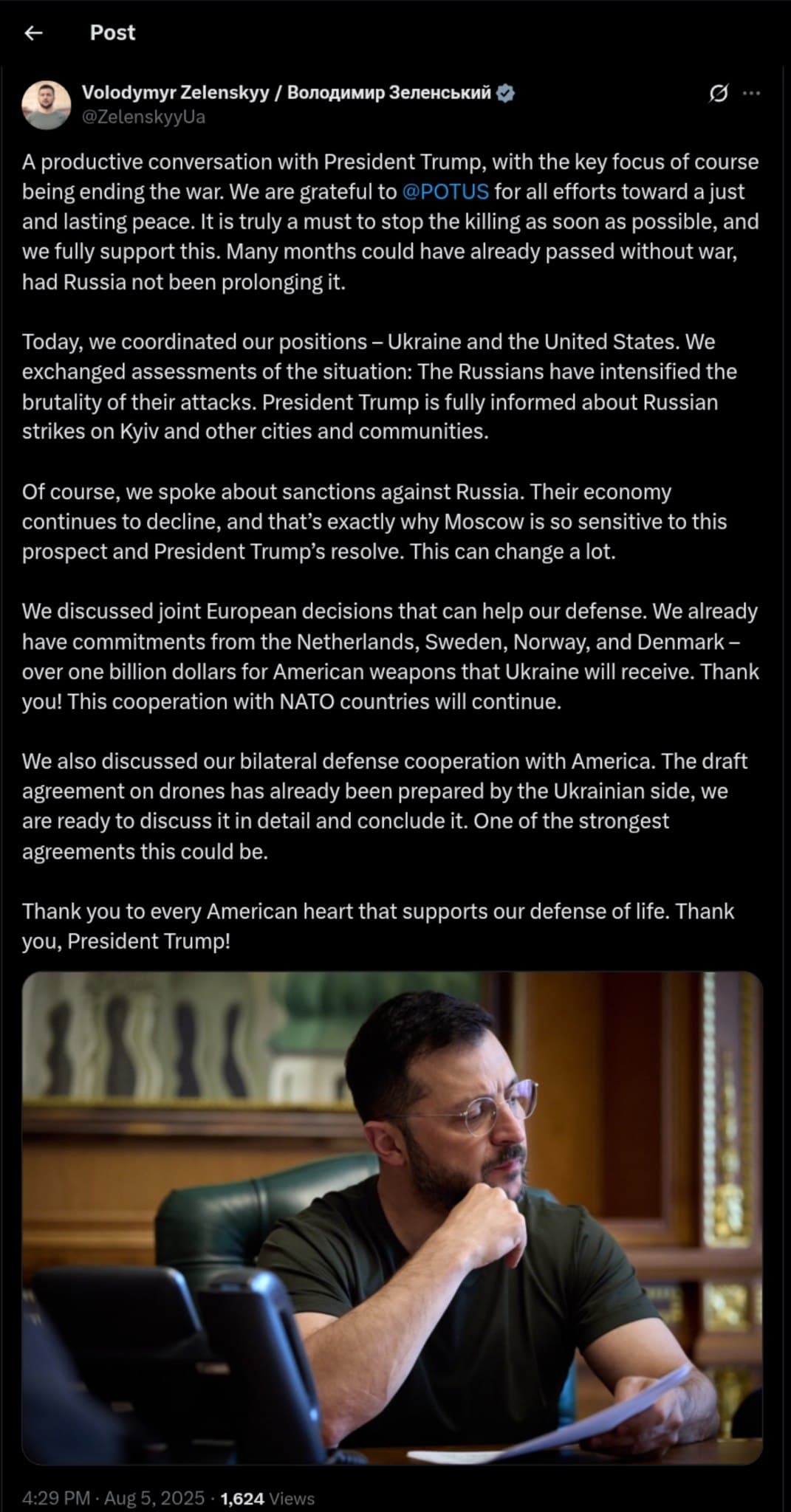Zelensky and Trump Unite for Urgent Action Against Russia, Seek Just Peace
In a pivotal phone call, Ukrainian President Volodymyr Zelensky and U.S. President Donald Trump engaged in a "productive conversation" aimed at forging stronger cooperation to combat the ongoing Russian aggression in Ukraine. The discussion, which took place amid increasing Russian attacks on Ukrainian cities, highlighted both leaders" commitment to achieving a swift and just resolution to the conflict.
Background & Context
The war in Ukraine has entered a critical phase, with Russian forces intensifying their assaults on key urban areas, including the capital, Kyiv. This escalation has prompted urgent calls for international support, particularly from the United States and its NATO allies. The recent conversation between Zelensky and Trump signifies not only the ongoing commitment of the U.S. to Ukraine but also underscores the geopolitical stakes involved in the conflict.
Since the outset of the war, Ukraine has faced significant challenges, including military aggression, economic destabilization, and humanitarian crises. The U.S. has been a key ally, providing military and financial assistance to bolster Ukraine"s defenses. With the recent uptick in violence, the need for coordinated international action has become even more pressing.
Key Developments
During their call, Zelensky emphasized the urgent need to stop the "killing as soon as possible," advocating for a diplomatic resolution that ensures a just peace for Ukraine. The two leaders discussed strategies to enhance cooperation between Ukraine and the U.S., particularly in light of the intensified Russian military operations.
One of the significant outcomes of the conversation was the agreement to explore stronger sanctions against Russia, aimed at crippling its economy and reducing its ability to sustain military operations. Zelensky expressed gratitude for the ongoing support from the American people and the U.S. government, highlighting the importance of this partnership in Ukraine"s fight for sovereignty.
Additionally, the leaders touched upon a draft agreement regarding drone technology, which is crucial for modern warfare. Detailed discussions on this topic are anticipated in the coming weeks, as both nations seek to enhance Ukraine"s military capabilities.
Broader Impact
The implications of this call extend beyond the immediate military context. Experts suggest that a unified front between Ukraine and the U.S. could significantly alter the dynamics of the conflict. By increasing economic sanctions on Russia, the U.S. may not only weaken its adversary but also rally other NATO allies, such as the Netherlands, Sweden, Norway, and Denmark, who have collectively pledged over $1 billion in military aid to Ukraine.
This cooperative effort reflects a broader strategy among NATO allies to confront Russian aggression while reinforcing the principles of international law and sovereignty. The situation is reminiscent of previous global conflicts where collective action played a crucial role in deterring aggression and restoring peace. As previously reported, similar situations have arisen in other regions, underscoring the necessity for a coordinated international response.
What"s Next
Looking ahead, the focus will be on the implementation of new sanctions against Russia and the logistics of military support from NATO allies. The discussions around drone technology are expected to escalate, with potential agreements being finalized that could enhance Ukraine"s defensive and offensive capabilities.
Moreover, as the conflict continues to evolve, further dialogues between Zelensky and Trump are likely, along with increased involvement from other global leaders. The international community will be watching closely to see how these developments unfold and what they mean for the future of Ukraine and the stability of the region.
As the situation progresses, the need for urgent action and international solidarity remains paramount in the quest for peace and security in Ukraine.


![[Video] Heavy clashes and gunfire reported in Baghdad, Iraq](/_next/image?url=%2Fapi%2Fimage%2Fthumbnails%2Fthumbnail-1768342239932-848qsh-thumbnail.jpg&w=3840&q=75)




![[Video] Gunfire between Iraqi security forces and Sadr militias in Baghdad](/_next/image?url=%2Fapi%2Fimage%2Fthumbnails%2Fthumbnail-1768343508874-4redb-thumbnail.jpg&w=3840&q=75)
